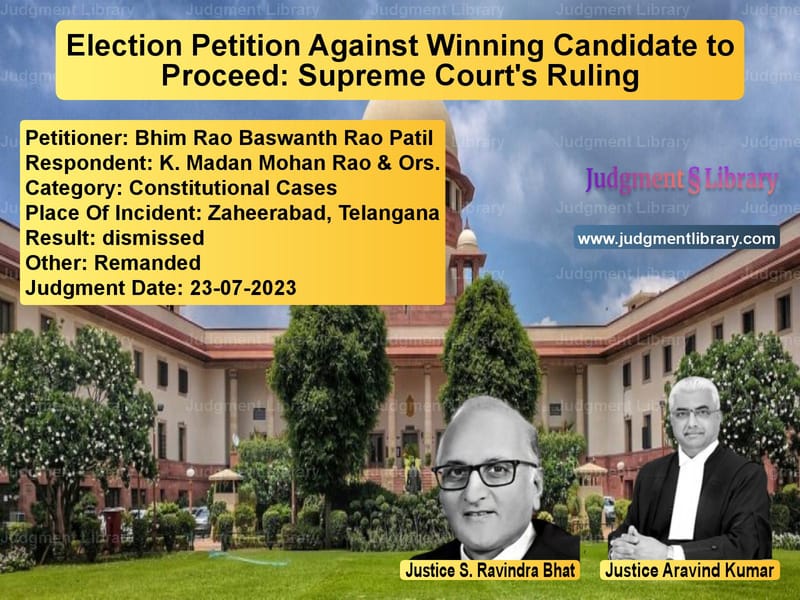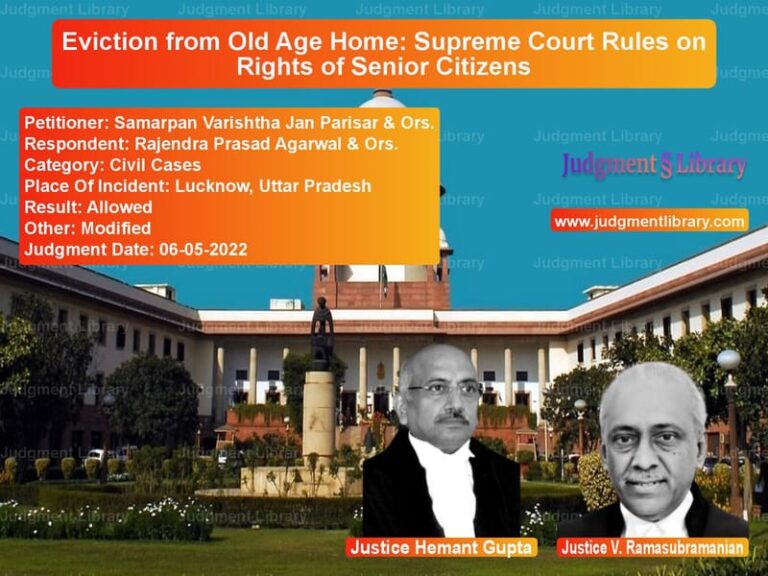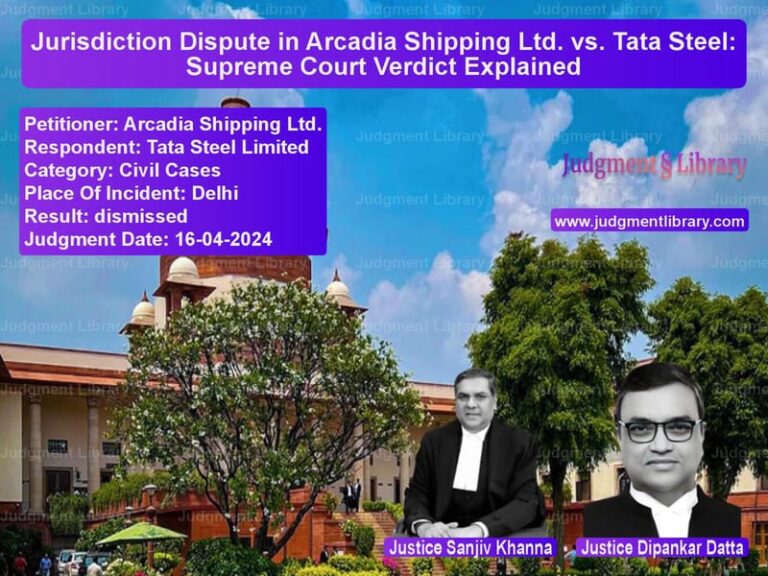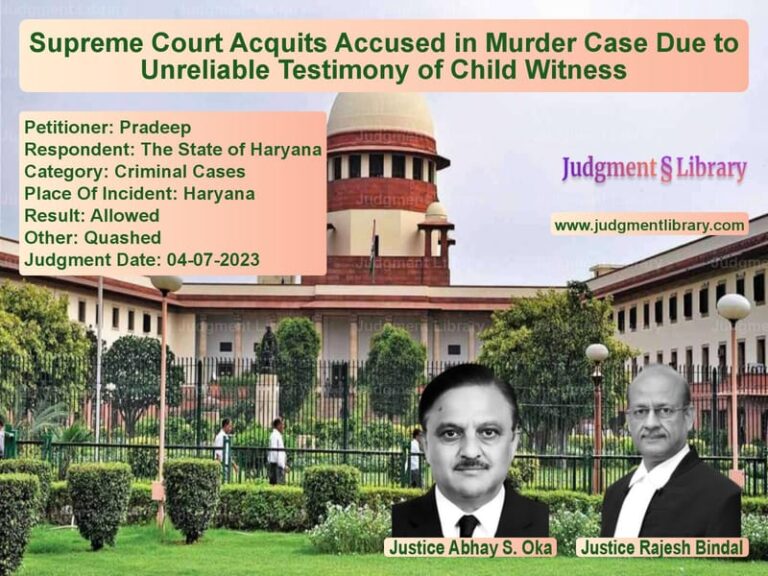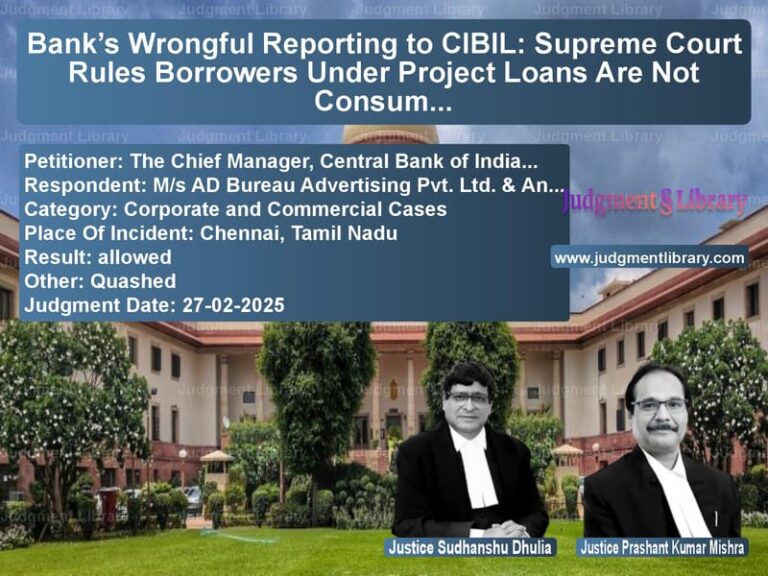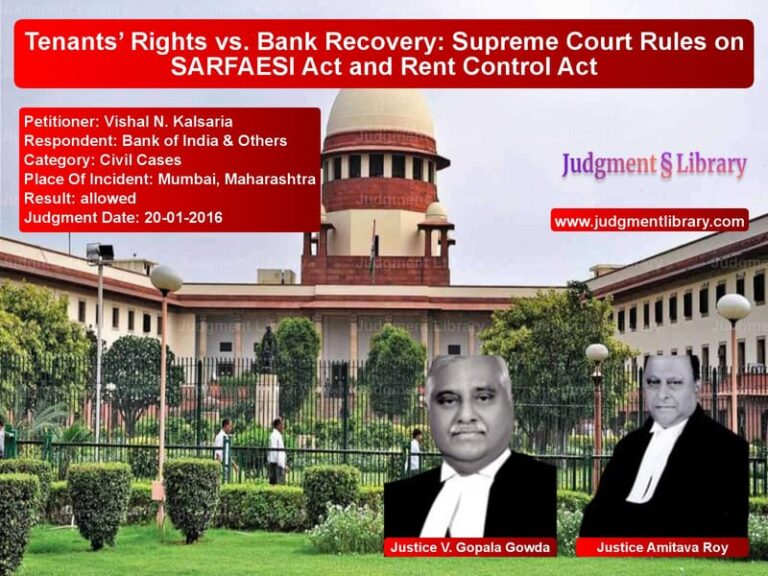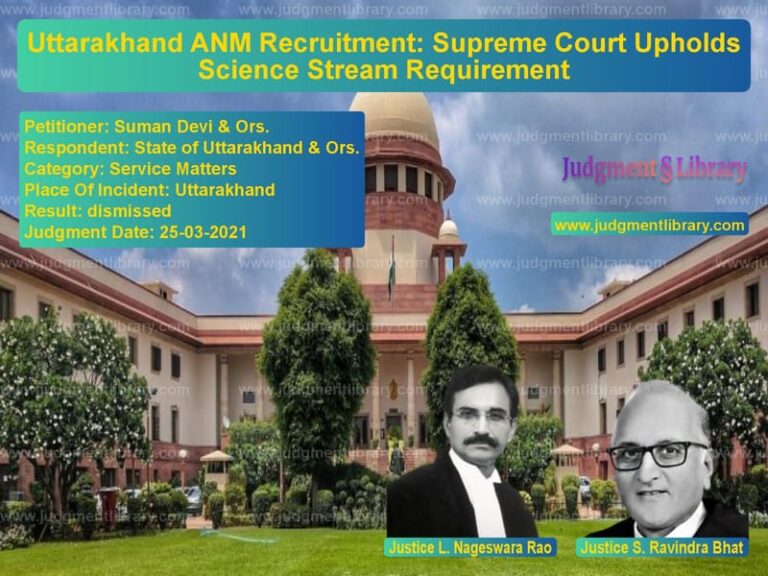Election Petition Against Winning Candidate to Proceed: Supreme Court’s Ruling
The case of Bhim Rao Baswanth Rao Patil v. K. Madan Mohan Rao & Ors. revolves around an election dispute concerning the Zaheerabad Parliamentary Constituency in Telangana. The Supreme Court, in its ruling on July 24, 2023, upheld the Telangana High Court’s decision to allow the election petition against the winning candidate to proceed, rejecting the plea for its dismissal under Order VII Rule 11 of the Code of Civil Procedure (CPC). The judgment underscores the importance of disclosing criminal antecedents in election affidavits and maintaining the integrity of the electoral process.
Background of the Case
In the 2019 General Elections, Bhim Rao Baswanth Rao Patil, the appellant, contested from the Zaheerabad Parliamentary Constituency and was declared the winner on May 23, 2019, defeating K. Madan Mohan Rao by a margin of 6,229 votes. Following the election, Madan Mohan Rao filed an election petition under Sections 81 and 84 read with Sections 100(1)(d)(i)(ii)(iii) & (iv) of the Representation of the People Act, 1951, challenging the election on several grounds.
The election petition alleged that:
- The appellant had furnished false information in Form 26 (election affidavit).
- The Returning Officer had failed to follow the Election Commission’s guidelines dated 10.10.2018.
- The appellant did not properly disclose pending criminal cases and convictions.
- There were violations in the publication of criminal case details, including issues with the font size and newspaper circulation.
- The name of the appellant was displayed in a misleading manner in the newspaper publications.
Following this, the appellant filed an application under Order VII Rule 11 of the CPC, seeking rejection of the election petition on the ground that it did not disclose any cause of action. The Telangana High Court dismissed this application, leading the appellant to challenge the decision in the Supreme Court.
Key Legal Issues
- Did the election petition disclose a valid cause of action?
- Was there a failure to disclose pending criminal cases and convictions?
- Should the election petition have been dismissed at the preliminary stage?
Arguments by the Appellant
The appellant contended that:
- The election petition should be dismissed under Order VII Rule 11, CPC, as it did not disclose a valid cause of action.
- There was substantial compliance with the Election Commission’s disclosure requirements.
- He was not required to disclose certain criminal cases as they did not fall within Section 8 of the Representation of the People Act and Section 33A since he had not been sentenced to imprisonment for more than one year.
- The allegations regarding font size and newspaper publication were technical and did not materially affect the election.
- Additional documents provided in the election proceedings proved that the claims made in the election petition were incorrect.
Arguments by the Respondent (Election Petitioner)
The respondent, K. Madan Mohan Rao, countered by arguing:
- The appellant had willfully concealed criminal cases in Form 26, thereby misleading voters.
- The non-disclosure of pending cases and past convictions violated Election Commission guidelines and Representation of the People Act.
- The Election Symbols (Reservation and Allotment) Order, 1968 mandated disclosure of criminal cases, which was not complied with.
- The issue of misleading information warranted a trial and could not be dismissed summarily under Order VII Rule 11.
- The matter involved public interest and the purity of elections, which required full adjudication rather than a summary dismissal.
Supreme Court’s Observations
The Supreme Court analyzed whether the election petition disclosed a valid cause of action and whether the non-disclosure of criminal cases constituted a material violation. The Court held that:
“The right to vote, based on an informed choice, is a crucial component of the essence of democracy. The elector or voter’s right to know about the full background of a candidate is an added dimension to the rich tapestry of our constitutional jurisprudence.”
On Non-Disclosure of Criminal Cases
The Court found that the appellant had omitted to disclose two prior convictions under the Payment of Wages Act, 1936 and the Minimum Wages Act, 1948. Although these offenses carried only fines, the failure to disclose them in the affidavit raised serious questions about transparency.
The Court observed:
“The requirement of disclosure is not dependent on the nature of the sentence but rather on the principle of transparency. Voters have a right to be fully informed about the antecedents of candidates.”
On the Procedural Validity of the Election Petition
The Court reiterated that an election petition should not be dismissed at the preliminary stage if it discloses any triable issue. It held:
“The election petition, on the face of it, raises serious allegations that warrant a full trial. The dismissal of an election petition under Order VII Rule 11 is an exception, not the rule.”
Final Judgment
The Supreme Court dismissed the appeal, allowing the election petition to proceed. It directed the Telangana High Court to hear the matter on its merits, ensuring that the appellant had an opportunity to present his defense.
Implications of the Judgment
The judgment has significant implications for election law and the transparency of candidates:
- Stricter Compliance with Election Affidavit Disclosures: Candidates must ensure full and accurate disclosure of all criminal cases, including those resulting in fines.
- Reinforcement of Voter Rights: The ruling strengthens the voter’s right to know the full details of candidates contesting elections.
- Judicial Caution in Dismissing Election Petitions: Courts must be cautious in dismissing election petitions at the preliminary stage, ensuring that allegations of electoral malpractice are fully examined.
Conclusion
The Supreme Court’s decision in Bhim Rao Baswanth Rao Patil v. K. Madan Mohan Rao & Ors. reaffirms the importance of transparency in elections and the need for candidates to disclose their full criminal history. The ruling ensures that voters have access to complete information about candidates before making an electoral choice. By allowing the election petition to proceed, the Court has reinforced the integrity of the democratic process.
Petitioner Name: Bhim Rao Baswanth Rao Patil.Respondent Name: K. Madan Mohan Rao & Ors..Judgment By: Justice S. Ravindra Bhat, Justice Aravind Kumar.Place Of Incident: Zaheerabad, Telangana.Judgment Date: 23-07-2023.
Don’t miss out on the full details! Download the complete judgment in PDF format below and gain valuable insights instantly!
Download Judgment: bhim-rao-baswanth-ra-vs-k.-madan-mohan-rao-&-supreme-court-of-india-judgment-dated-23-07-2023.pdf
Directly Download Judgment: Directly download this Judgment
See all petitions in Public Interest Litigation
See all petitions in Judgment by S Ravindra Bhat
See all petitions in Judgment by Aravind Kumar
See all petitions in dismissed
See all petitions in Remanded
See all petitions in supreme court of India judgments July 2023
See all petitions in 2023 judgments
See all posts in Constitutional Cases Category
See all allowed petitions in Constitutional Cases Category
See all Dismissed petitions in Constitutional Cases Category
See all partially allowed petitions in Constitutional Cases Category

